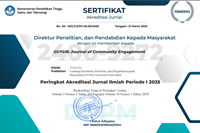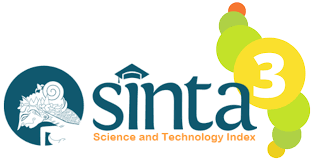Algarni, S., Tirth, V., Alqahtani, T., Alshehery, S., & Kshirsagar, P. (2023). Contribution of renewable energy sources to the environmental impacts and economic benefits for sustainable development. Sustainable Energy Technologies and Assessments, 56. https://doi.org/10.1016/j.seta.2023.103098
Aman, J., Abbas, J., Shi, G., Ain, N. U., & Gu, L. (2022). Community Wellbeing Under China-Pakistan Economic Corridor: Role of Social, Economic, Cultural, and Educational Factors in Improving Residents’ Quality of Life. Frontiers in Psychology, 12. https://doi.org/10.3389/fpsyg.2021.816592
Bouncken, R. B., & Kraus, S. (2022). Entrepreneurial ecosystems in an interconnected world: emergence, governance and digitalization. Review of Managerial Science, 16(1). https://doi.org/10.1007/s11846-021-00444-1
Da Silva, L. B. L., Humberto, J. S., Alencar, M. H., Ferreira, R. J. P., & de Almeida, A. T. (2020). GIS-based multidimensional decision model for enhancing flood risk prioritization in urban areas. International Journal of Disaster Risk Reduction, 48. https://doi.org/10.1016/j.ijdrr.2020.101582
El-Zein, A., Ahmed, T., & Tonmoy, F. (2021). Geophysical and social vulnerability to floods at municipal scale under climate change: The case of an inner-city suburb of Sydney. Ecological Indicators, 121. https://doi.org/10.1016/j.ecolind.2020.106988
Elaouzy, Y., & El Fadar, A. (2022). Energy, economic and environmental benefits of integrating passive design strategies into buildings. In Renewable and Sustainable Energy Reviews (Vol. 167). https://doi.org/10.1016/j.rser.2022.112828
Fatma, M., Khan, I., Rahman, Z., & Pérez, A. (2020). The sharing economy: the influence of perceived corporate social responsibility on brand commitment. Journal of Product and Brand Management, 30(7), 964–975. https://doi.org/10.1108/JPBM-04-2020-2862
Ihle, R., Rubin, O. D., Bar-Nahum, Z., & Jongeneel, R. (2020). Imperfect food markets in times of crisis: economic consequences of supply chain disruptions and fragmentation for local market power and urban vulnerability. Food Security, 12(4), 727–734. https://doi.org/10.1007/s12571-020-01084-1
Kaluarachchi, Y. (2021). Potential advantages in combining smart and green infrastructure over silo approaches for future cities. Frontiers of Engineering Management, 8(1), 98–108. https://doi.org/10.1007/s42524-020-0136-y
Kishore, T. S., Patro, E. R., Harish, V. S. K. V., & Haghighi, A. T. (2021). A comprehensive study on the recent progress and trends in development of small hydropower projects. In Energies (Vol. 14, Issue 10). https://doi.org/10.3390/en14102882
Kyvelou, S. S. I., & Ierapetritis, D. G. (2020). Fisheries sustainability through soft multi-use maritime spatial planning and local development co-management: Potentials and challenges in Greece. Sustainability (Switzerland), 12(5). https://doi.org/10.3390/su12052026
Liu, S., Wang, Z., Han, M., & Zhang, J. (2021). Embodied water consumption between typical desalination projects: Reverse osmosis versus low-temperature multi-effect distillation. Journal of Cleaner Production, 295. https://doi.org/10.1016/j.jclepro.2021.126340
Ma, L., Liu, S., Tao, T., Gong, M., & Bai, J. (2022). Spatial
reconstruction of rural settlements based on livability and population flow. Habitat International, 126. https://doi.org/10.1016/j.habitatint.2022.102614
Moret, J. (2020). Mobility capital: Somali migrants’ trajectories of (im)mobilities and the negotiation of social inequalities across borders. Geoforum, 116, 235–242. https://doi.org/10.1016/j.geoforum.2017.12.002
Nicholls, E., Ely, A., Birkin, L., Basu, P., & Goulson, D. (2020). The contribution of small-scale food production in urban areas to the sustainable development goals: a review and case study. In Sustainability Science (Vol. 15, Issue 6, pp. 1585–1599). https://doi.org/10.1007/s11625-020-00792-z
Olounlade, O. A., Li, G. C., Kokoye, S. E. H., Dossouhoui, F. V., Akpa, K. A. A., Anshiso, D., & Biaou, G. (2020). Impact of participation in contract farming on smallholder farmers’ income and food security in rural Benin: PSM and LATE parameter combined. Sustainability (Switzerland), 12(3). https://doi.org/10.3390/su12030901
Putri, D. F. (2024). Human Resource Management ( Hrm ) in Improving Customer Behavior Through Emotional Attachment ( Ea ). 02(01), 850–859.
Shokri, A., & Sanavi Fard, M. (2022). A sustainable approach in water desalination with the integration of renewable energy sources: Environmental engineering challenges and perspectives. In Environmental Advances (Vol. 9). https://doi.org/10.1016/j.envadv.2022.100281
Yin, F., Xue, X., Zhang, C., Zhang, K., Han, J., Liu, B. X., Wang, J., & Yao, J. (2021). Multifidelity genetic transfer: An efficient framework for production optimization. SPE Journal, 26(4), 1614–1635. https://doi.org/10.2118/205013-PA
Zeller, V., Lavigne, C., D’Ans, P., Towa, E., & Achten, W. M. J. (2020). Assessing the environmental performance for more local and more circular biowaste management options at city-region level. Science of the Total Environment, 745. https://doi.org/10.1016/j.scitotenv.2020.140690
 (Universitas Nurul Jadid)
(Universitas Nurul Jadid) 









.png)
